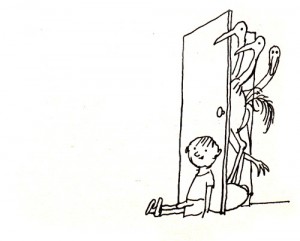March 25, 2013 at 11:39 am
Relating to CC201's study of The Renaissance is the essay 'One Of Us' by John Jeremiah Sullivan on animal consciousness, in which he discusses Descartes' views on the topic. Here is an extract:
Descartes’ term for them [animals] was automata—windup toys, like the Renaissance protorobots he’d seen as a boy in the gardens at Saint-Germain-en-Laye, “hydraulic statues” that moved and made music and even appeared to speak as they sprinkled the plants.
This is how it was with animals, Descartes held. We look at them—they seem so full of depth, so like us, but it’s an illusion. Everything they do can be attached by causal chain to some process, some natural event.
Picture two kittens next to each other, watching a cat toy fly around, their heads making precisely the same movements at precisely the same time, as if choreographed, two little fleshy machines made of nerves and electricity, obeying their mechanical mandate.
The essay (bit.ly/YteICr) proceeds to expand and discuss these ideas, and is an interesting read.
By mdimov
|
Posted in Academics, Curriculum, Great Personalities, Great Questions
|
Tagged animal, CC201, chemistry, consciousness, Descartes, emotion, Mind, question
|
March 22, 2013 at 1:48 pm
To all CC105 students,
Nate and Gayle, your Core Mentors, have been sending out weekly emails summarizing the important topics from the lectures that week, reminding you of assignments and giving you links to some science articles that you may find interesting. The Core Blog is regularly updated with what is being sent in these emails. For the last week before spring break:
Important Topics:
- Electromagnetic waves (light) (review)
- Speed of light (review)
- Refractive index
- v=μ
- Differential absorption of wavelengths in H20
- Reflection and refraction
- H20 as a medium
- Snell's window
- Blue Jay search images
- Spatial resolution
- Pit viper and the debate of whether their "pits" allow them to see in the infrared
- Flicker fusion as a visual illusion
Reminders:
- Prof. Atema's lectures have been updated. Please download them again. Slides marked with stars will be important to study for the exam.
- Important changes to Labs 3 & 4: Lab 3 will meet on April 3, not March 20; Lab 4 will meet on April 17, not April 10. Here is the updated schedule:
Lab I, Feb. 6: Simulating natural selection and building phylogenies
Lab II, Mar. 6: Sensory biology
Lab III, Apr. 3: Ecology and behavior of isopods
Lab IV, Apr. 17: Biosphere I: Building an ecosystem
Lab V, Apr. 24: Biosphere II: Analysis of an ecosystem"
Interesting Articles:
If you have any questions, email Nate (ndf93@bu.edu) or Gayle (gminer@bu.edu)!!
By mdimov
|
Posted in Academics, Announcements, Curriculum
|
Tagged announcement, CC105, exam, information, list, reminder, weekly
|
March 20, 2013 at 3:13 pm

Tomi Ungerer's illustration for Ted Hughes' My Brother Bert
The Core presents a collaboration between editor William Cole and children’s book illustrator Tomi Ungerer, in which various poems by A.A. Milne, Ted Hughes & Shelley Silverstein are illustrated in lovely and amusing ways.
For the full set of poems accompanied by their illustrations, visit http://bit.ly/100zIM3
By mdimov
|
Posted in Art, Friday Fun, Great Ideas
|
Tagged amusing, collaboration, cute, drawing, editor, funny, illustration, illustrator, poetry
|


